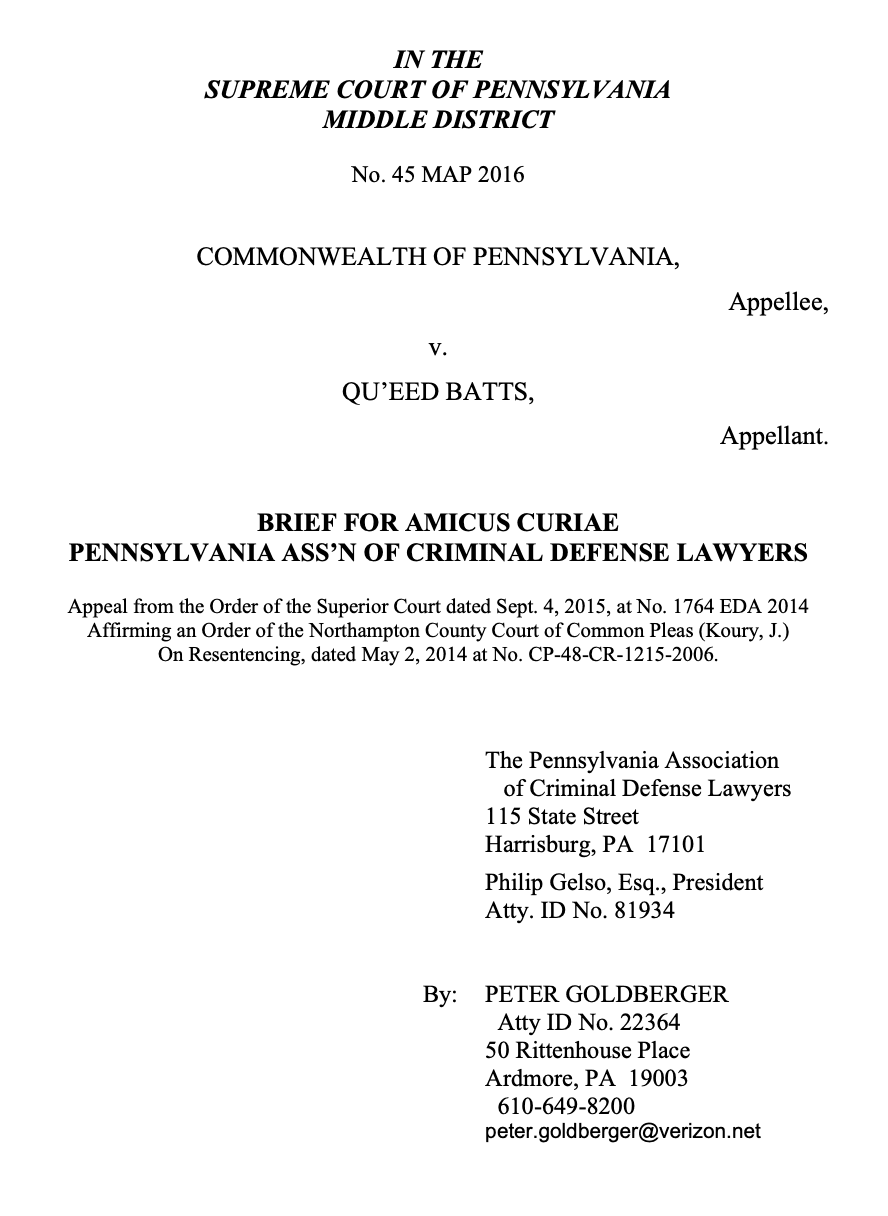
Summary of Argument
The legislature of this Commonwealth has never amended the sentencing scheme for the offense of first degree murder that existed in 2006, even for homicides committed by a juvenile. The legislature fixed Pennsylvania’s “Miller problem” prospectively in October 2012, but expressly refused in that legislation to address the issue with respect to cases originally sentenced prior to June 25, 2012, including that of Qu’eed Batts. See 18 Pa.C.S. § 1102.1(a) (applicable only to those “convicted after June 24, 2012”).
The unconstitutional features of the current statutory scheme cannot be severed under 1 Pa.C.S. § 1925, because the provisions that would remain would be contrary to legislative intent and not capable of fulfillment without impermissible judicial elaboration or emendation. Under our state Constitution’s separation of powers, the function of assigning a punishment to statutory criminal conduct is purely legislative. Commonwealth v. Wolfe, No. 68 MAP 2015 (Pa., June 21, 2016) (J-24-2016, at 19-20); Commonwealth v. Hopkins, 117 A.3d 247, 261 (Pa. 2015); Commw. ex rel. Varronne v. Cunningham, 365 Pa. 68, 71, 73 A.2d 705, 706 (1950). Moreover, the function of assigning a “missing” penalty cannot be exercised by the judiciary in the course of an appeal, as a matter of federal Fourteenth Amendment Due Process. See United States v. Batchelder, 442 U.S. 114, 123 (1979). As noted, the Legislature has expressly refused to exercise its authority in cases such as this one, leaving the only available punishment for Batts’ most serious offense one that is unconstitutional. As a result, this Court has no choice but to order that upon resentencing, Mr. Batts not be sentenced for first degree murder at all, but only for any other or lesser offense for which he may have been convicted and for which a lawful penalty is available.
This Court reached a different conclusion on this question of judicial authority and separation of powers when the present case was formerly before the Court. See Commonwealth v. Batts, 620 Pa. 115, 66 A.3d 286, 294-96 (2013) (“Batts I”). Because the reasoning of that decision does not survive Montgomery’s explanation of Miller (and because the Court in Batts I did not consider or address the controlling authorities presented in this brief for amicus curiae and is irreconcilable with both earlier and later precedent, that is, Varronne, Hopkins and Wolfe), the issue should be reconsidered at this time. To say that a given sentence would not be unconstitutional (were it actually to be authorized by law), is not to say that such a sentence has in fact been authorized. Yet just such a fallacy underlies the decision on this point in Batts I. Accordingly, that question should be reopened and reconsidered. The question discussed in this brief is necessarily prior to, and an essential foundation for, the procedural issues on which allowance of appeal was expressly granted.